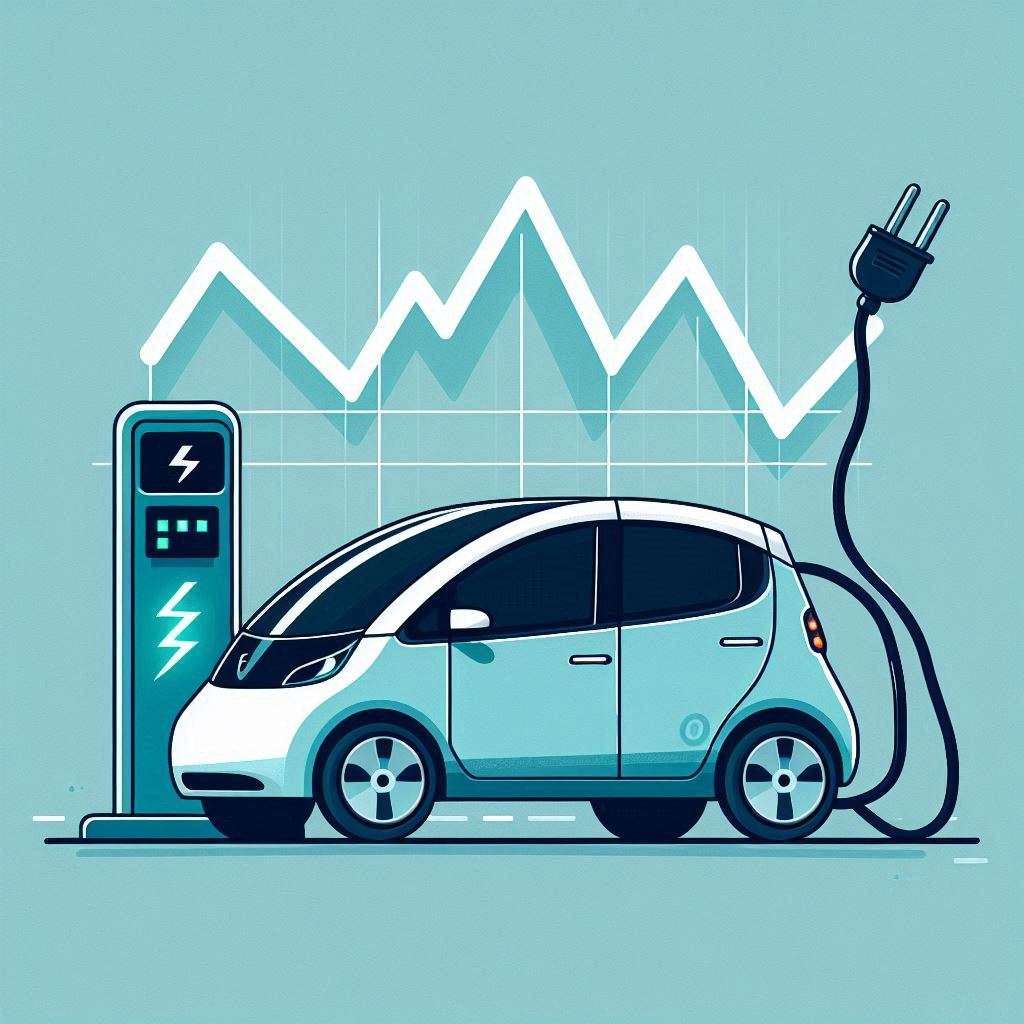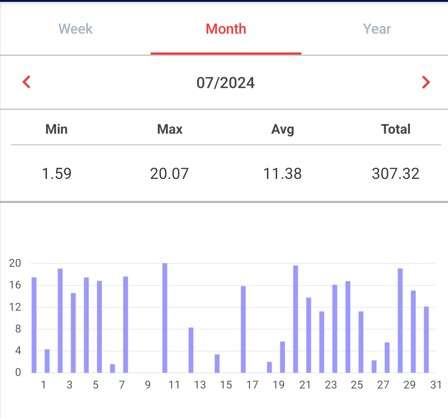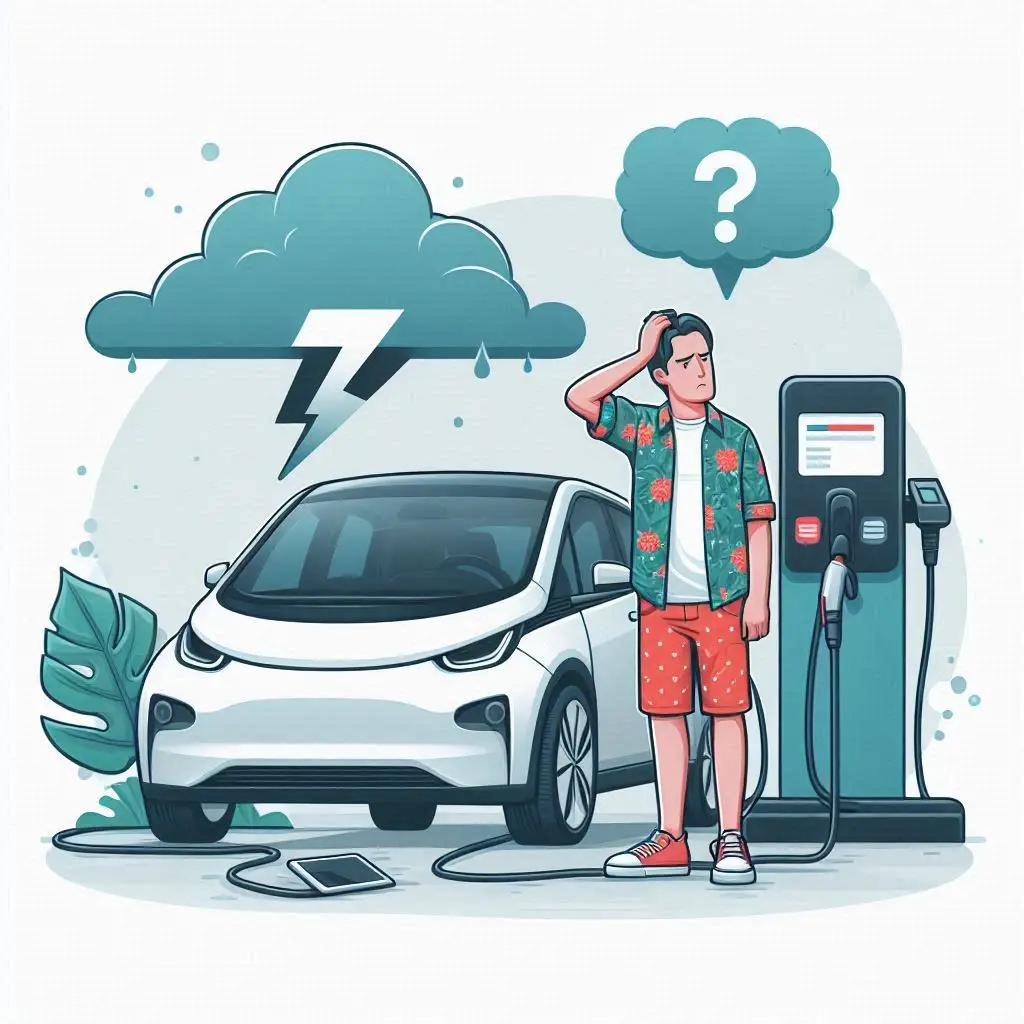
Overview of Monthly EV Charging Cost
Often, little attention is paid to how much electricity you consume monthly, especially if you own an electric vehicle. EVs consume a decent proportion of any household’s electricty. From my charger app I know in July, my EV used 307 kWh. I average over 400km a week.
Click here if you’re after a basic charging guide.
If you’re worried about finding chargers, read our article Nowhere to charge an EV?
Impact of Winter on Solar Energy Production
For those relying on solar energy, winter can significantly impact production levels, but does it impact EV charging cost? With shorter days and often cloudy skies, solar panels may generate less electricity than in sunnier months. This can lead to increased reliance on grid energy.
When the sun is shining, solar costs me 7c per kWh because I don’t get my feed in tarrif. I have a nightsaver EV plan, which gets me a rate of just 8c per kWh between midnight and 6am. My EV consumption is around 307 kWh per month. This isn’t expected to change much, but winter can make an EV less efficient. It looks like winter is going to be more expensive, but by how much?


Breakdown of Electricity Billing Rates
At a rate of 8 cents per kWh, my July (winter) monthly total for 307 kWh is approximately $24.56. During summer when I can rely on much more solar, the same consumption would cost $21.49, a saving of about $3. This straightforward pricing allows me to calculate expenses easily and understand how much my EV contributes to overall electricity consumption.
A clear breakdown of electricity billing rates can reveal significant insights into energy costs. Understanding these rates helps in budgeting for both household and EV charging needs, ensuring we are well-prepared for fluctuations in bills during different seasons.
I haven’t compared this cost to petrol or diesel yet, but I doubt too many people are spending just $25 a month on fossil fuels. They’re definitely not travelling over 1600km for that price.
Tips for Reducing EV Energy Expenses
For reducing your energy expenses, you can adopt several strategies that help lower your EV charging costs. Consider implementing these tips:
- Drive conservatively (I constantly fail on this, I just can’t help myself if I’m first at the lights)
- Adjust regenerative braking to optimum – I’ve got mine set to level 3 auto and it saves a lot of energy.
- Consider time-of-use rates for electricity – this is what saves me the most. Midnight to 6am is almost 1/4 my daytime rate.
- Drive less. This reduced my consumption by 1/3, when we recently moved office to a location closer to home. This isn’t always possible, but if the opportunity arises, it’s handy.
- Towing will inrease your consumption. If you need a towbar check out our EV Stealth Towing Solutions review. You can remove these, reducing weight and drag when you don’t need the towbar.
The combination of these practices not only enhances energy efficiency but also contributes to significant savings over time.
It’s also handy to be aware of your household energy consumption habits and the peak times when electricity is more expensive. There’s no reason you can’t apply some of the same logic to household energy use. To further reduce energy costs, consider:
- Investing in smart home technology
- Improving your home’s insulation
- Using solar power when possible
- Changing habits, like timing the dishwasher/washing machine/dryer to start at midnight when rates are lowest.
- As appliances wear out, replace them with energy efficient models. this can range from LED lights to whitegoods.
The more informed you are about your energy usage, the better equipped you’ll be to manage and minimise your expenses.
End Note: My peak electricity rate is just over 30c per kWh, which would raise my monthly cost to just under $100 if I charge on peak rates. Travelling 1600km with petrol or diesel is a bit over $250 for the same distance per month, based on $2 per litre. We all know fuel prices fluctuate wildly, but $2 a litre is a reasonable cost for this comparison at the time of writing.
For more information you can read our guide on EV Charging for Battery Health.


